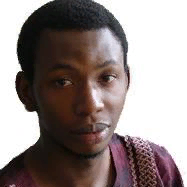
C. G. Monyei
Work place: Department of Electronic and Electrical Engineering, University of Leeds, Leeds, UK
E-mail:
Website:
Research Interests: Computational Science and Engineering, Engineering
Biography
Chukwuka Monyei is currently a NRF-TWAS doctoral candidate at the Centre for Applied Artificial Intelligence, School of Mathematics, Statistics and Computer Science, University of KwaZulu Natal (UKZN). He is a masters graduate from the School of Electronic and Electrical Engineering at the University of Leeds and a first class graduate (BSc) from the Electrical and Electronic Engineering Department, University of Ibadan. Since 2014, he has been involved in research on the smart grid, energy management systems (EMS), demandside management (DSM) and distributed generation (DG) allocation/commitment scheduling and optimization.
Author Articles
Corrosion Assessment of some Buried Metal Pipes using Neural Network Algorithm
By B. A. Oladipo O. O. Ajide C. G. Monyei
DOI: https://doi.org/10.5815/ijem.2017.06.03, Pub. Date: 8 Nov. 2017
The key aim of this assessment is to characterize the rate of corrosion of buried Nickel plated and non-plated AISI 1015 steel pipes using a Modified Artificial Neural Network on Matlab and taking the oil and gas area of Nigeria as a case study. Ten (10) metal specimens were used. Five (5) were nickel electroplated specimens buried differently in 5 plastic containers containing 5 different soil samples with the other 5 non-plated specimens also buried into the same 5 soil samples but different plastic containers. In carrying out the experiment, the data that was collected for 25 consecutive days were grouped into sets of input and output data. This was required so as to appropriately feed the modelling tool (Artificial Neural Network). The input data were; temperature of the soil sample, temperature of the immediate surroundings, and pH of the soil sample while the output data was weight loss. Conclusively, Modified Artificial Neural Network relationships between the varied selected input parameters that affects corrosion rate (soil sample temperature, immediate environment temperature and pH value) and the output parameter (Corrosion Penetration Rate) were derived. Also, soil sample temperature and the immediate surrounding temperature combined conditions had the strongest effect on corrosion penetration rate while the immediate surrounding temperature and the pH value combined conditions had the weakest effect on corrosion penetration rate.
[...] Read more.Other Articles
Subscribe to receive issue release notifications and newsletters from MECS Press journals